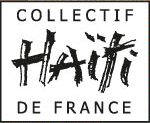INTERNATIONAL CRISIS GROUP – NEW BRIEFING
To keep Haiti on course and avoid further unrest, its government needs to build a broad national consensus, reaching out to parliament and civil society.
"Haiti 2009: Stability at Risk", the latest update briefing from the International Crisis Group, examines a fragile political, social and economic situation. A series of crises in 2008 have pushed more Haitians into poverty and increased the potential for serious trouble this year.
“The socio-economic situation is worse than at the time of the April 2008 riots and the fall of the Alexis government”, says Bernice Robertson, Crisis Group’s Senior Haiti Analyst. “President René Préval and Prime Minister Michèle Pierre-Louis need to secure the support of donors and parliament to swiftly implement a wide-ranging stabilisation strategy or risk renewed political instability and violence”.
There is an urgent need for broad political consensus and improved relations between the executive and legislative branches of government as well as a government-donor-civil society partnership to kick start a community-oriented process that will not only reconstruct Haiti but also transform it into a safer and more stable nation.
The immediate focus should include:
- identifying government-led, community-approved, high-impact and high-visibility projects to tackle key challenges such as job-creation and food shortages;
- boosting security sector reform by speedily completing actions planned and begun in 2008 to control porous borders and corrupt and inefficient ports;
- working closer with parliament and improving transparency in handling emergency funds and carrying out reconstruction; and
- strengthening democratic institutions and stabilisation efforts by holding inclusive elections in 2009 observed by nationals and internationals.
Contacts
Andrew Stroehlein (Brussels) +32 (0) 2 541 1635
Kimberly Abbott (Washington) +1 202 785 1601
http://www.crisisgroup.org/home/index.cfm?id=5952&l=1
